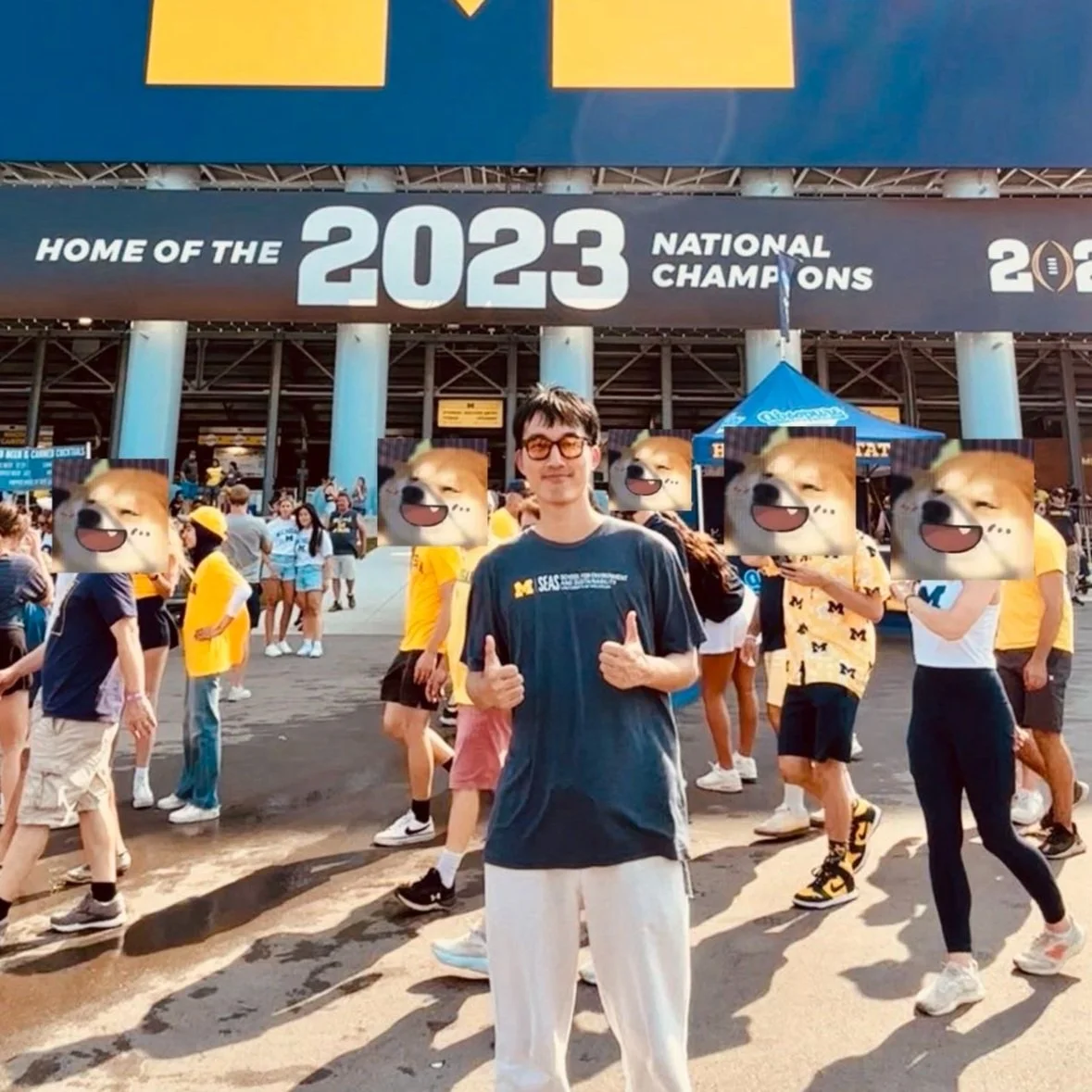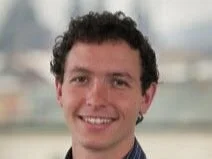Principal Investigator
michael craig
Michael Craig is an Assistant Professor of Energy Systems in the School for Environment and Sustainability and in Industrial and Operations Engineering at the University of Michigan. Michael grew up in Hershey, PA, the Sweetest Place on Earth. He received a B.A. in Environmental Studies (specializing in Ecology and Biology) from Washington University in St. Louis, an M.S. in Technology and Policy from the Massachusetts Institute of Technology, and a Ph.D. in Engineering and Public Policy from Carnegie Mellon University. In between and after his graduate education, he worked at Oceana and the U.S. National Renewable Energy Laboratory. How climate change and other environmental issues will impact humans and natural systems motivates his research. He counts himself extremely fortunate that the gets to work with amazing people, including all the other members of the ASSET Lab.
Postdoctoral Fellows
Aviad navon
Aviad joined the ASSET Lab in May 2024 as a Postdoctoral Fellow after earning his Ph.D. in Electrical and Computer Engineering from the Technion – Israel Institute of Technology. Aviad is jointly appointed between SEAS and Industrial and Operations Engineering. During his doctoral research, Aviad employed game theory to study how decision-making processes affect the evolution of modern electric grids. Collaborating with the Israeli Electric Corporation, Aviad also addressed the challenges associated with integrating clean energy sources into electric grids and proposed viable solutions. Notably, one of his solutions was adopted by the Israeli Electricity Authority. Aviad’s current research focuses on robust decision making for decarbonization of electric grids under deep uncertainty of climate change.
mai shi
Mai is currently a postdoctoral research fellow in the ASSET lab, having joined in December 2024. Mai obtained his Ph.D. from the School of Environment at Tsinghua University, where his doctoral research focused on the potential and utilization of rooftop solar PV in China. From October 2022 to September 2023, Mai was affiliated with the ASSET lab as a visiting Ph.D. student. His research in this period focused on the impacts of climate change on the value of rooftop solar PV across the United States. Mai's current research focuses on the interplay of climate change and technology adoption towards a reliable decarbonized energy system in the future. In his spare time, he enjoys playing and watching soccer.
PhD Students and Candidates
Martha christino
Martha is a third year PhD student in the University of Michigan's School for Environment and Sustainability on a dual track for a second degree in the Climate and Space program. She holds bachelor's degrees in Atmospheric Science/Meteorology and Civil Engineering from Penn State. Martha's research interests focus on combining climate and energy models to create resilient infrastructure. She has specialized in understanding the interdisciplinary threats climate change poses and is passionate about integrating climate security into the national security agenda.
megan jones
Megan is a second year PhD student in the School for Environment and Sustainability at the University of Michigan on a dual track for a second degree in the Electrical Engineering program. She holds bachelor's degrees in Mechanical Engineering and Physics from UCLA. Raised on environmentalist ideals and directly exposed to the expansive dangers climate change poses to humanity, Megan is pursuing a PhD with the intention to engage in transformative, interdisciplinary research addressing the current existential problem facing our species. Her current research focuses on applying a Robust Decision Making (RDM) framework to climate-aware capacity expansion modeling for the electricity grid.
wei ai
Wei is a second year PhD student at the University of Michigan's School for Environment and Sustainability, beginning in 2024. He holds a Bachelor's degree in Energy and Power Engineering from Tsinghua University and a Master's degree from the University of Chinese Academy of Sciences. Wei is interested in macro-energy system modeling and the techno-economic analysis of emerging low-carbon technologies. Currently, he is investigating underground hydrogen storage as a long-duration energy storage solution, with an emphasis on infrastructure retrofitting and expansion dynamics. Wei is committed to contributing to the transition toward a decarbonized future as a researcher. In his spare time, Wei enjoys watching DOTA2 games, working out, and spending time with his girlfriend.
riti bhandarkar
Riti is a 1st year PhD student in the School for the Environment and Sustainability. She is interested in using quantitative methods to tackle questions surrounding energy systems and decarbonization. Prior to joining SEAS, Riti worked as a consultant for Energy and Environmental Economics (E3), where she contributed to their long-term planning and resource adequacy work. She holds a Bachelor's degree in Civil and Environmental Engineering from Princeton University.
Master’s Students
Undergraduate Students
Alumni
haochi wu
Haochi graduated with his PhD from the School of Control Science and Engineering, Zhejiang University. He was a visiting PhD student at the ASSET Lab for two years. His research focused on the impact of climate change on rooftop solar, hydrogen production, and electric vehicles. He is now a postdoctoral fellow at Stanford University.
papa yaw owusu-obeng
Papa Yaw graduated from the School for Environment and Sustainability in 2025. His research at the lab examined how the effect of zoning ordinances on rural utility-scale solar deployment, and how solar deployment can be targeted to maximize local economic benefits. Prior to graduate school, Papa Yaw worked for the Ghana Energy Commission in promoting electrification in remote communities. He now conducts integrated resource planning at American Electric Power.
pamela wildstein
Pamela graduated in 2025 with dual PhDs in the School for Environment and Sustainability and the Department or Urban and Regional Planning. Supported by an NSF Graduate Research Fellowship, her research interests examined the effects of retail rates and direct load control programs on demand. She now works as a Market Analyst at Monitoring Analytics.
max vanatta
Max completed his PhD student in the School for Environment and Sustainability in 2025. His research analyzed the technoeconomic value of small modular reactors in decarbonizing industrial heat. He now works at the U.S. National Renewable Energy Laboratory as a Research Engineer.
Franklyn kanyako
Franklyn received his PhD in Industrial Engineering and Operations research from University of Massachusetts Amherst in 2021. His PhD research focused on R&D investment in low carbon energy technologies under deep uncertainty. At the ASSET Lab, Franklyn’s research examined the role of alternative policy interventions aimed at reducing direct air capture costs, and their consequences on its deployment. He now works at the University of Wisconsin Madison as a Research Scientist.
Marisol Garrouste
Marisol Garrouste received her Ph.D. from University of Michigan's Nuclear Engineering program in 2024. She holds a Master of Science and Executive Engineering from Mines Paristech in France. Marisol's research focused on Integrated Energy Systems, in particular the interaction between nuclear reactors, other carbon-free technologies and various markets. During her PhD, Marisol was a Graduate Fellow at the Idaho National Laboratory. She now works as a Research Engineer at the National Renewable Energy Laboratory.
andrew schallwig
Andrew graduated in 2024 from the UM College of Engineering studying Computer Engineering. At the lab, he set up a codebase for running EnergyPlus via Python, and helped to integrate EnergyPlus with ResStock. His work is being used in several ongoing projects in the lab. He is now a researcher at the Energy Policy Institute at the University of Chicago.
Srihari (Hari) Sundar
Hari completed his PhD, supervised by Michael, in Aerospace Engineering at the University of Michigan in 2023. His prior work was in materials informatics and data driven modeling. His research at ASSET Lab analyzed meteorological drivers of resource adequacy failures in power systems, and robust decision-making for power systems under deep climate uncertainty. Hari is joining the U.S. National Renewable Energy Laboratory as a Research Engineer in the Grid Planning and Analysis Center.
Ritvik jain
Ritvik graduated with an MS from the School for Environment & Sustainability in 2023. His research focused on understanding residential energy burdens under future climate conditions using computational energy models. He is now a Consultant with Energy and Environmental Economics.
camilo toruno-taylor
Camilo is a PhD student in Industrial and Operations Engineering at the University of Michigan. His research in the lab examined the effect of climate change on energy burdens, finding a trade-off between rising summer and decreasing winter energy burdens.
An pham
An received her PhD in Energy Engineering from the Pennsylvania State University. She finished her 2-year fellowship with ASSET Lab in June 2023. Her research focused on grid-scale deployment of negative emissions technologies and technoeconomic analysis of emerging technologies, including thermal energy storage in households. She is now a Research Engineer at the U.S. National Renewable Energy Laboratory in the Accelerated Deployment and Decision Support center and the Grid Planning and Analysis Center.
zihan ye
Zihan graduated in December 2023 with a dual master's student studying sustainable energy systems. Zihan grew up in China, where she obtained her bachelor's in new energy science and engineering. During her undergraduate in the Chinese University of Hong Kong, Shenzhen, she had interned as a sustainable urban plan engineer and renewable power plant lean consultant. Her MS thesis quantified meteorology drivers and storage reliability in high renewable energy penetrated power systems.
bhavesh rathod
Bhavesh graduated with an M.S. in Sustainable Systems from University of Michigan's School for Environment and Sustainability. He now works at the U.S. National Renewable Energy Laboratory with the REopt model to help communities and companies decarbonize their buildings.
larson lovdal
Larson graduated with a dual Masters degree in Mechanical Engineering and the School of the Environment and Sustainability. He focused on the intersection of technology and finance, while engaging critically with the social contexts of these solutions, in order to accelerate a more equitable clean energy transition. He has worked in renewables investment banking, energy strategy & facilities consulting, and residential construction. He is now a Clean Energy Finance Expert at the U.S. National Renewable Energy Laboratory in the Accelerated Deployment and Decision Support center.
Reshmi ghosh
Reshmi graduated with a Ph.D. in Civil and Environmental Engineering from Carnegie Mellon University in 2021. She is now a ML Scientist at Microsoft AI. She researched the reliability of power systems in the future under large renewable energy integration scenarios using data-driven analysis.
deep patel
Deep graduated with an M.S. from the Department of Nuclear Engineering and Radiological Sciences (NERS) at the University of Michigan. He is now a Senior Product Manager at Amazon.
amanda farthing
Amanda graduated with a Master’s degrees in Mechanical Engineering (College of Engineering) and Sustainable Systems (School for Environment and Sustainability) at the University of Michigan in 2021. She now works as a Research Engineer in the Modeling and Analysis Group at the U.S. National Renewable Energy Laboratory. Her work quantified the value of distributed solar plus storage for public buildings with respect to bill savings, resilience, and climate and health benefits.
meiye wang
May graduated with a Master’s from the Sustainable Systems track of the School for Environment and Sustainability at the University of Michigan in 2021. She now works as a Data Analyst performing vehicles grid integration analysis at The Mobility House, an EV software company aiming to create a zero-emission energy and mobility future. Her thesis quantified the value of Vehicle-to-Grid (V2G) in a future California power system.
isaac bromley-dulfano
Isaac graduated with a BSE in Electrical Engineering. His work at ASSET Lab focused on reliability value of renewable energy and on forecasting demand using long-term reanalysis dataset. He is now a Power System Engineer at ISO New England.
julian florez
Julian graduated with a BSE in Mechanical Engineering with a minor in Anthropology at the University of Michigan. Julian’s work at the lab focused on quantifying the reliability value of renewables across the Western Interconnection. In the summer of 2021, Julian was an Undergraduate Researcher at the Santa Fe Institute. He now works at American Airlines as an industrial engineer.




























